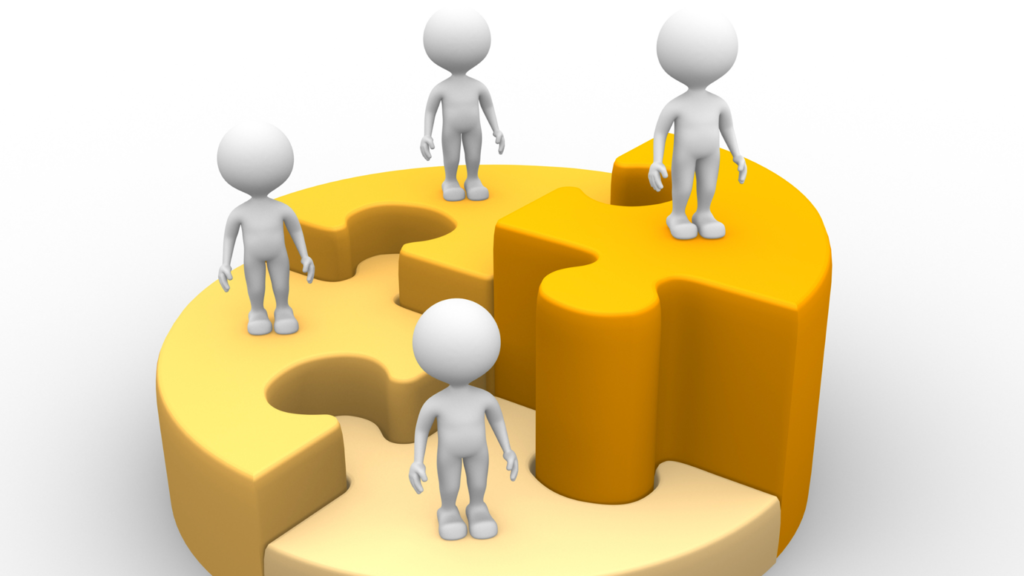Which Part of the Brain, IQ Tests Measures
Explore the fascinating world of concepts and brain activity. This article examines intelligence test-measured brain areas to better understand intelligence. This in-depth analysis will attract psychology and neuroscience students and anyone who wants to learn more.
By carefully investigating brain networks, we can understand mental abilities. The essay discusses key brain regions involved in IQ testing, including the frontal cortex, which makes decisions and solves problems, and the parietal lobe, which processes math and spatial information.

The connections between brain regions affect our IQ. Recent scientific breakthroughs are affecting psychology and education. Join us as we seek enlightenment via knowledge.
Acquiring knowledge of the structure and function of the brain
The complicated network of brain connections affects our thoughts, feelings, and behaviors; this biological marvel is amazing. Understanding the many brain areas and their functions is crucial to understanding intelligence.
The frontal lobe is crucial to intelligence. Executive processes like problem-solving and decision-making depend on the prefrontal cortex. Reasoning, planning, and working memory are prefrontal cortex functions. Research reveals that those with developed frontal lobes have higher IQs.
The parietal lobe houses another essential IQ test component. You may focus, use your senses, and think numerically and spatially here. It aids numerical, visual, and mental computations. Hyperactive parietal lobes are associated with higher IQs, thinking, and problem-solving skills.
Knowledge and the prefrontal cortex
The top of the brain, the frontal lobe, controls many cognitive functions and intellect. The prefrontal cortex in the frontal lobe controls reasoning, decision-making, and working memory.
According to study, a large, active prefrontal cortex is associated with high IQ. People with higher IQs can think abstractly, handle complicated issues, and store and remember a lot of information in working memory.
Planning, impulse control, and self-control are prefrontal cortex-controlled executive functions. Due to the substantial association between intellect and these abilities, IQ tests examine these mental capacities extensively. The prefrontal cortex with higher IQs is stronger and more efficient, allowing for greater emotion management, complex task execution, and decision-making.
The parietal lobe’s role in IQ testing
The posterior cingulate cortex’s parietal lobe is also significant for IQ assessments. In addition to processing sensory information and paying attention, this region controls mathematical and spatial thinking.
The parietal lobe processes mental, visual, and numerical information. Parietal lobe-strong persons thrive at reasoning, problem-solving, and ecological awareness. High IQ is strongly linked to certain cognitive abilities.
Active parietal lobes improve mental rotation, arithmetic, and visual-spatial puzzle-solving IQ tests. Ability to analyze and understand visual and numerical data in the parietal lobe indicates intelligence.
Intelligence and the temporal lobe
The temporal lobes of the brain process language, hearing, and memory, among other things. Standard intelligence tests don’t easily examine the temporal lobe, but that doesn’t negate its importance in intelligence.
Language comprehension and speech are mediated by the temporal lobe. The brain’s memory center also understands language and recognizes faces. Due to their excellent memory recall and language skills, people with well developed temporal lobes have higher IQs.
The temporal lobe processes, makes meaning, and hears. Auditory memory is needed to remember and recreate tone sequences. Memory and auditory perception affect intelligence and performance, even if IQ tests don’t directly assess them.
Impact of the occipital lobe on cognitive ability
At the very base of the skull sits the occipital lobe, the primary area of the brain that processes and perceives visual information. Although it is implicated in cognitive capacities, the occipital lobe is not explicitly assessed in conventional intelligence exams.
Basic to intelligence is the ability to take in visual information, interpret it, and make sense of it. When it comes to processing visual information and mentally representing objects, forms, and patterns, the occipital lobe is crucial. Visual thinking and problem solving tend to come naturally to people whose occipital lobes are fully developed. On top of that, they usually have better visual-spatial ability.
In addition, the occipital lobe helps in visual memory, which is the capacity to identify and recover previously seen images. This skill is necessary for visual recall tasks, including memorizing complicated visual sequences or patterns. Visual perception and memory are not directly measured by IQ tests, but they have a substantial impact on a person’s cognitive capacity and could affect their performance on the test as a whole.
How the cerebellum affects cognitive processes
The cerebellum has long been related to motor control and homeostasis, but only recently to intellect and other cognitive capacities. This rear of the brain region has more neurons per square inch than any other, suggesting it may affect cognition.
Research shows that the cerebellum affects attention, language, and problem-solving. It helps regulate and organize mental functions, which speeds up data processing and task completion. A properly formed cerebellum improves attention, communication, and problem-solving, which raises IQs.
Recent studies suggest the cerebellum contributes to higher-order cognitive abilities, but more research is needed to fully understand its role in intelligence. Despite being mostly responsible for motor coordination, the cerebellum affects intelligence development.
The role of the brain’s limbic system in IQ tests
The cerebellum has long been related to motor control and homeostasis, but only recently to intellect and other cognitive capacities. This rear of the brain region has more neurons per square inch than any other, suggesting it may affect cognition.
Research shows that the cerebellum affects attention, language, and problem-solving. It helps regulate and organize mental functions, which speeds up data processing and task completion. A properly formed cerebellum improves attention, communication, and problem-solving, which raises IQs.
Recent studies suggest the cerebellum contributes to higher-order cognitive abilities, but more research is needed to fully understand its role in intelligence. Despite being mostly responsible for motor coordination, the cerebellum affects intelligence development. .
The relevance of synapses which link various brain regions
Understanding brain area function is key, but understanding their connections is even more important. A sophisticated brain network of information flows improves cognition and intelligence.
The occipital, frontal, parietal, cerebellar, and limbic systems work together to maintain mental sharpness. All these places are related. When the temporal, parietal, and prefrontal lobes cooperate, language, decision-making, and problem-solving improve. Visual perception and spatial awareness need occipital-parietal data transfer.
The cerebellum’s connections to reasoning and memory regions make it more than a motor control center. It may influence higher-order thinking because to its prefrontal cortex, parietal lobe, and limbic system connections.
Information flow in the brain affects intellect and thinking. By examining cross-domain correlations, intelligence and IQ tests can be better understood.
In sum, IQ testing have its limitations, and intelligence is complex.
Intelligence defies quantification by a single metric due to its complexity and multi-dimensionality. Intelligence tests may be helpful in gauging some cognitive capacities, but they may not account for all aspects of human intellect.
The areas of the brain that are assessed by intelligence tests have an effect on a person’s cognitive capacity and performance. The frontal, parietal, temporal, occipital, cerebellar, and limbic systems are all involved. Intelligence is not limited to a person’s IQ but includes a wide range of emotional, social, and cognitive abilities.
Intelligence requires not only the ability to reason and solve problems on one’s own, but also the capacity to empathize with others, be creative, and have intrinsic motivation. Researchers must continue to probe intelligence’s foundations and find more precise ways to quantify its myriad dimensions.
Finally, IQ tests focus on certain regions of the brain to reveal the chemical basis of intelligence. If we want to know how we gain intelligence, we must study the roles and connections between these domains. It is essential to recognize that IQ tests have limitations, and a more thorough assessment of intelligence is necessary. Since intelligence includes many different types of emotional and social skills, its evaluation requires a comprehensive approach that goes beyond traditional testing.



